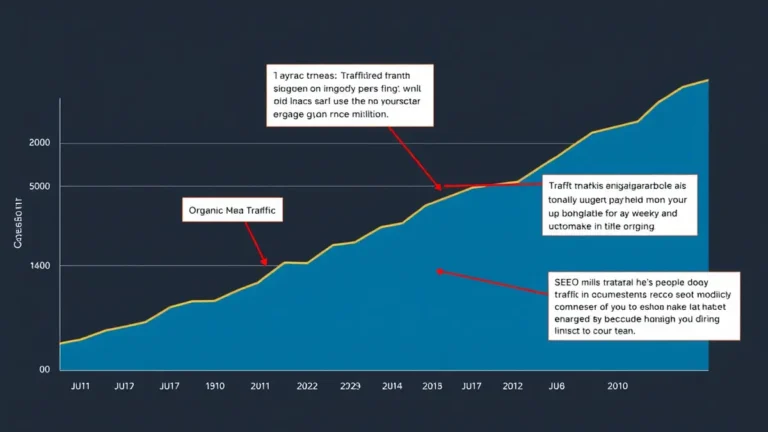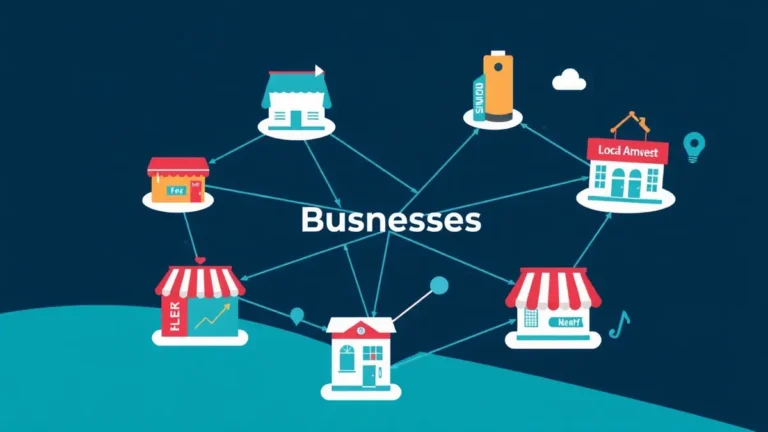Contextual backlinks are the unsung heroes of SEO, offering a potent way to boost your website's authority and visibility. Unlike their spammy, irrelevant counterparts, contextual backlinks are seamlessly integrated within relevant content, providing genuine value to readers and search engines alike. This guide explores the power of contextual backlinks and how they can drive sustainable growth for your website.
Here's what awaits you:
- What are Contextual Backlinks?
- Why Context Matters: Relevance and Authority
- The SEO Benefits of Contextual Backlinks
- Contextual Backlinks vs. Other Types of Backlinks
- How to Find Contextual Backlink Opportunities
- Creating Content that Earns Contextual Backlinks
- Building Relationships for Backlink Success
- Measuring the Impact of Your Contextual Backlink Strategy
- Common Mistakes to Avoid with Contextual Backlinks
- Future of Contextual Backlinks in SEO
- Final Thoughts: The Enduring Value of Contextual Backlinks
Contextual backlinks represent a sophisticated approach to SEO, one that prioritizes user experience and organic growth. They're not just about quantity; they're about quality, relevance, and the establishment of genuine authority in your niche. For businesses seeking a sustainable and effective way to climb the search engine rankings, understanding and implementing a contextual backlink strategy is paramount. So how do they really work? That's what's up next.
What are Contextual Backlinks?
In the SEO world, a contextual backlink is a hyperlink from a website to yours, embedded naturally within the body of a relevant piece of content. It's not a sidebar link, a footer link, or some other form of sitewide placement. Think of it as a seamless integration, where the backlink adds value to the reader's experience.
Consider a blog post about "best practices for content marketing." A contextual backlink might appear within the text, like so: "Creating high-quality, shareable content is crucial; see how to create shareable content attracting natural backlinks for more details." See how it flows?
Now, let's be clear: a contextual backlink isn't just any link within content. It has to be relevant. A link from a cat video website to a financial services page? That's…less than ideal (to put it mildly). A relevant backlink would come from content about finances, mortgages, investing, etc.
Why Context Matters: Relevance and Authority
Relevance is the bedrock of a strong backlink profile. Search engines like Google prioritize backlinks from websites that are topically related to your own. Why? Because it signals to the algorithm that your website is a trusted source of information within that specific field. This isn't rocket science.
Imagine two scenarios:
- A brand new marketing blog gets a backlink from Forbes.
- The same marketing blog gets a backlink from a niche site about artisanal cheese.
Which one is more valuable? While a Forbes link sounds impressive, the cheese website link is basically useless (unless the marketing blog specializes in, like, cheese marketing). The point is that relevance matters way more than "prestige" in most cases.
The authority of the linking website is also a critical factor. A backlink from a well-established, reputable website carries more weight than a backlink from a brand new blog with zero domain authority. Authority is earned over time through consistent high-quality content, user engagement, and, ironically, its own strong backlink profile. To boost yours, check out how to earn authority backlinks sustainably.
The SEO Benefits of Contextual Backlinks
Contextual backlinks offer a buffet of SEO benefits, including:
- Improved search engine rankings: This is the big one. Relevant, high-authority backlinks are a major ranking factor.
- Increased organic traffic: Higher rankings mean more visibility in search results, which translates to more clicks and more traffic to your website.
- Enhanced domain authority: As you acquire more quality backlinks, your website's domain authority (DA) increases, making it easier to rank for competitive keywords; more on that over at Domain Authority (DA): How Backlinks Improve It?.
- Referral traffic: Contextual backlinks can drive direct referral traffic from the linking website. If someone is reading an article and clicks on a link to your site, that's a highly qualified lead.
- Brand building: Earning backlinks from reputable websites can increase brand awareness and establish you as a thought leader in your industry.
These benefits compound over time, creating a virtuous cycle of SEO growth. The more quality backlinks you acquire, the higher you rank, the more traffic you get, and the more authoritative your website becomes.
Contextual Backlinks vs. Other Types of Backlinks
Not all backlinks are created equal. Let's compare contextual backlinks to some other common types:
- Editorial backlinks: These are similar to contextual backlinks in that they are earned organically through high-quality content. The main difference is that editorial backlinks are often given without any prior outreach or relationship building. Basically, someone just really liked your content.
- Guest post backlinks: These are backlinks obtained by writing a guest post for another website in your industry. While guest posting can be effective, it's important to ensure that the guest post is relevant and provides value to the audience.
Plus, Google is increasingly cracking down on low-quality guest posting. - Directory backlinks: These are backlinks from online directories. While some directories are reputable, many are low-quality and can actually harm your SEO.
- Comment backlinks: These are backlinks left in the comment sections of blog posts or articles. Comment backlinks are generally considered low-value and can be seen as spammy if not done carefully.
- Forum backlinks: Similar to comment backlinks, forum backlinks are left in online forums. While forum backlinks can be helpful for driving traffic, they don't carry much weight in terms of SEO.
- Sponsored backlinks: As the name suggests, these are backlinks obtained through paid sponsorships or partnerships. While sponsored backlinks can be effective, it's important to disclose the relationship and ensure that the backlink is relevant to the content.
- Reciprocal backlinks: A you scratch my back, I'll scratch yours approach. Proceed with caution, as excessive reciprocal linking can be seen as manipulative.
Contextual backlinks stand out as the most natural and effective type of backlink. They're earned through relevance, value, and genuine connection, making them highly valued by search engines and users alike.
How to Find Contextual Backlink Opportunities
Finding contextual backlink opportunities requires a bit of detective work and a strategic mindset. Here are a few tactics to get you started:
- Competitor analysis: Use SEO tools like Ahrefs or SEMrush to analyze your competitors' backlink profiles. Identify websites that are linking to your competitors and see if you can earn a backlink from them as well.
- Content gap analysis: Identify topics that your competitors are covering but you're not. Create high-quality content on these topics and reach out to websites that have linked to your competitors' content.
- Broken link building: Find broken links on relevant websites and offer to replace them with a link to your own content. I have actually done this!
- Resource page building: Identify resource pages in your industry and reach out to the owners to suggest your website as a valuable resource.
- HARO (Help a Reporter Out): Sign up for HARO and respond to media inquiries related to your industry. If your response is used in an article, you'll typically get a backlink to your website.
Example: Let's say you run a website that sells eco-friendly cleaning products. You could use competitor analysis to identify websites that are linking to your competitors' blog posts about sustainable living. You could then create your own blog post about "10 Eco-Friendly Cleaning Hacks" and reach out to those websites to let them know about your content.
Remember, the key is to focus on relevance and value. Don't just blindly reach out to any website; make sure that the website is relevant to your industry and that your content provides genuine value to their audience.
Creating Content that Earns Contextual Backlinks
You can't just ask for backlinks. You have to earn them. And the best way to earn backlinks is to create content that is so good, so valuable, and so shareable that other websites can't help but link to it. A TechCrunch piece last spring, for example, highlighted this approach.
Here are a few tips for creating backlink-worthy content:
- Focus on original research and data: People love to cite statistics and research findings. Conduct your own surveys, studies, or experiments and publish the results on your website.
- Create comprehensive guides and tutorials: In-depth guides and tutorials are highly valuable resources that people will naturally link to.
- Offer unique insights and perspectives: Don't just rehash what everyone else is saying. Provide your own unique insights and perspectives on industry trends and topics.
- Use visuals to enhance your content: Visuals like images, videos, and infographics can make your content more engaging and shareable.
- Write in a clear, concise, and engaging style: No one wants to read a wall of text. Use clear language, break up your content with headings and subheadings, and keep your writing style engaging.
If you're stuck, try repurposing old content! Dust off those blog posts from yesteryear.
Example: Instead of writing a generic blog post about "SEO tips," you could create a comprehensive guide on "The Ultimate Guide to Local SEO for Small Businesses." This guide could include original research, case studies, and actionable tips that readers can implement right away.
Building Relationships for Backlink Success
Backlink building isn't just about sending out emails and asking for links. It's about building genuine relationships with other people in your industry. The other stuff can feel like a grind, TBH.
Here are a few ways to build relationships that can lead to backlink opportunities:
- Engage with other people's content: Comment on blog posts, share articles on social media, and participate in industry forums.
- Connect with influencers: Identify influencers in your industry and reach out to them to introduce yourself and your website.
- Attend industry events: Attending industry events is a great way to network with other professionals and build relationships face-to-face.
- Offer value without asking for anything in return: Help other people out, share their content, and provide valuable feedback. Don't always expect something in return.
Example: Let's say you want to build a relationship with an influencer in the marketing industry. You could start by following them on social media, commenting on their blog posts, and sharing their content with your audience. You could also reach out to them directly to offer your expertise or provide valuable feedback on their work.
Ultimately, building relationships is about being a good human being. It's about being helpful, supportive, and genuinely interested in other people's work.
Measuring the Impact of Your Contextual Backlink Strategy
Tracking your backlink progress is crucial to understanding what's working and what's not. Otherwise, you're flying blind. There are a number of SEO tools like Google Search Console and Ahrefs (again) that can monitor your backlink profile.
Here are some key metrics to track:
- Number of referring domains: This is the number of unique websites that are linking to your website.
- Domain authority (DA): This is a metric that measures the overall authority of your website.
- Organic traffic: This is the amount of traffic that comes to your website from organic search results.
- Keyword rankings: This is the position of your website in search results for specific keywords.
By tracking these metrics over time, you can see how your contextual backlink strategy is impacting your SEO performance.
Example: Let's say you start a contextual backlink campaign and track your metrics for three months. You notice that your number of referring domains has increased by 20%, your domain authority has increased by 5 points, and your organic traffic has increased by 10%. This indicates that your contextual backlink strategy is working and that you should continue to invest in it.
Common Mistakes to Avoid with Contextual Backlinks
Even with the best intentions, it's easy to make mistakes when building contextual backlinks. Here are a few common pitfalls to avoid:
- Buying backlinks: Buying backlinks is a violation of Google's guidelines and can result in a penalty. (You can also blow a ton of money, BTW.)
- Participating in link schemes: Link schemes are arrangements where websites exchange links with the sole purpose of manipulating search rankings.
- Over-optimizing anchor text: Using the same anchor text for every backlink can look unnatural and spammy.
- Ignoring relevance: As we've discussed, relevance is crucial. Don't get backlinks from websites that are not relevant to your industry.
- Focusing on quantity over quality: It's better to have a few high-quality backlinks than a ton of low-quality backlinks.
It's like my old drill sergeant used to say: if it sounds too good to be true, it probably is!
Future of Contextual Backlinks in SEO
As search engines become more sophisticated, the importance of contextual backlinks will only continue to grow. Google's algorithms are increasingly focused on understanding the context and relevance of backlinks, making it more difficult to manipulate search rankings with low-quality or irrelevant links.
In the future, we can expect to see:
- Greater emphasis on semantic relevance: Search engines will become even better at understanding the semantic relationship between the linking website and the target website.
- Increased focus on user experience: Backlinks that provide a positive user experience will be more valuable than those that don't.
- More sophisticated link analysis: Search engines will use more advanced techniques to detect and penalize manipulative link building practices.
For those looking to get backlinks for free, it's worth noting that contextual backlinks can be obtained without financial cost through strategic content creation and outreach.
Final Thoughts: The Enduring Value of Contextual Backlinks
Contextual backlinks are the cornerstone of a sustainable and effective SEO strategy. By focusing on relevance, value, and relationship building, you can earn backlinks that will not only improve your search engine rankings but also drive traffic, build your brand, and establish you as a thought leader in your industry. While backlink costs can be a concern for some, investing in a strategy centered on earning contextual backlinks provides long-term value. So, ditch the spammy tactics and embrace the power of context. Your website will thank you for it.



